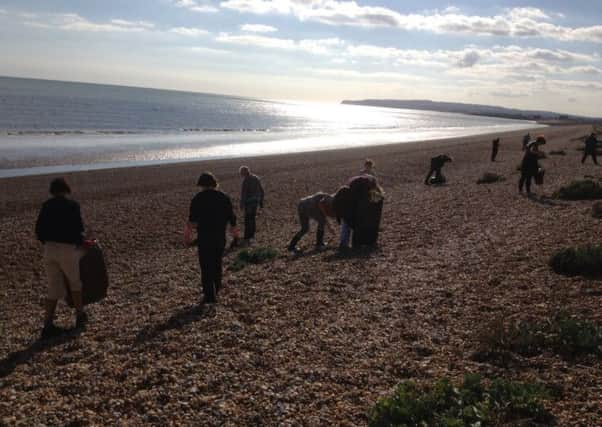Call to clean upour beaches aslitter increases


The new follows a report from the Society in 2009 which claimed beach litter was at its highest recorded level ever, with public litter accounting for nearly 40% of it.
The litter is pitting seabirds and marine wildlife at risk.
Volunteers recorded 385,659 individual pieces of rubbish – equivalent to two pieces per metre.
Advertisement
Hide AdAdvertisement
Hide AdEmma Snowden, MCS litter projects coordinator, said: “Whether you live near the coast or miles inland, we are all connected to the sea.
“This is a man-made problem. Every piece of litter has an owner and we all need to take responsibility to not drop litter in the first place.”
She said the society wanted to cut beach litter by 50% by 2015. “In order to achieve this we need to appoint lead agencies with the specific responsibility to stop marine litter and develop a marine action plan now.”
The accumulation of wet wipes could be partly due to the severe rainfall during the 2013-14 winter. Choked sewers may have flooded more rubbish (including wet wipes) than usual into rivers, which ended up on beaches.
Advertisement
Hide AdAdvertisement
Hide AdBut Charlotte Coombes, an MCS conservation officer, said there was a long-term increase in the number of cloths ending up in the environment and on beaches in particular.
She said: “This move towards convenience, the move towards items to use once and throw away, it’s much easier for people to do that. What we are doing is not just using a lot more resources we are creating a lot more litter that can end up in the environment.”
She said five of the world’s seven remaining species of turtle regularly visit Britain’s waters to feed in the cooler, nutrient-rich seas. Turtles often mistake plastic bags for their natural jellyfish prey. Wet wipes, which usually contain plastic fibres, pose a similar danger.
“When marine wildlife eats that plastic, which they quite often do, it just stays in the stomach of the animals and quite often they just die of starvation,” she said.
Advertisement
Hide AdAdvertisement
Hide AdPlastic packaging and discarded fishing nets injure, entangle and drown marine wildlife including seals and dolphins, the society warned. More than 170 marine animals have been recorded mistaking plastic bags and other items for food, which can result in starvation, poisoning and fatal stomach blockages. It can also be hazardous to people and costs millions of pounds to clear up.
Locally, volunteers take part in a number of beach clean-ups each year at Rye Harbour, Winchelsea Beach and Pett Level, removing dozens of bags of rubbish.
Co-ordinator Andy Dinsdale said: “If scientists don’t know how long plastic will last in the sea before it biodegrades completely (between 200 years and never!) then what are we leaving for our future generations? What is it going to take to curb our plastic throwaway habits.?”